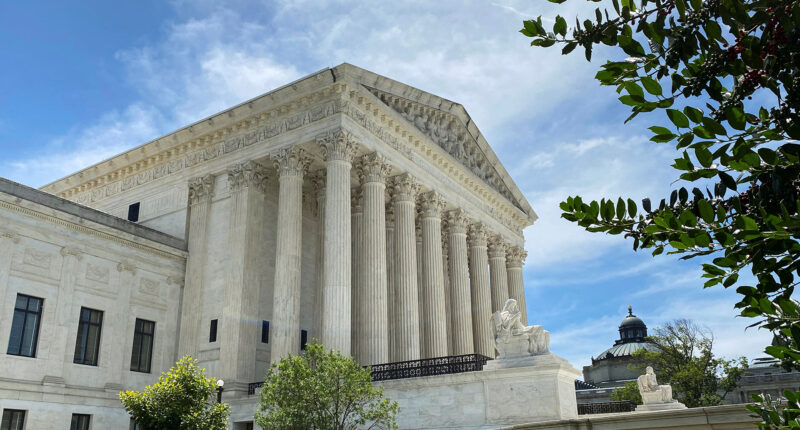A WOMAN who says she was passed over for a promotion because she is straight just scored a big win in the Supreme Court.
The justices ruled Thursday in her favor, slamming a rule that made it harder for “majority” workers to sue for discrimination.



The case stems from a dispute in Ohio.
Marlean Ames, who had been working at the Ohio Department of Youth Services since 2004, alleged that she missed out on a job opportunity because her boss, who is gay, selected another gay woman for the position.
Ames filed what is known as a “reverse discrimination” lawsuit, and ended up losing in lower courts because of a controversial requirement.
That rule, known as the “background circumstances” test, made it harder for straight or white workers to sue.
In order to progress with their claims, individuals such as Ames were required to provide evidence indicating that their employer had displayed bias against the dominant group, such as statistical data or a history of similar incidents, as reported by CNN.
She couldn’t provide that, and judges tossed her case as a result.
Nevertheless, the Supreme Court invalidated this standard, as liberal Justice Ketanji Brown Jackson authored the majority opinion clarifying the ruling.
Jackson said it was wrong to apply different rules based on someone’s race, gender, or sexual orientation.
“These requirements do not vary based on whether or not the plaintiff is a member of a majority group,” she wrote.
She called the background circumstances rule a “judge-made” test that “flouts that basic principle.”
The court’s decision was unanimous, with both conservative and liberal justices backing Ames.
The ruling wipes out the extra hurdle for plaintiffs like her in at least five appeals courts across the country.
It doesn’t mean Ames automatically wins her case, but now she gets another shot in court.
Her lawyer celebrated the move as a major win for fairness.
“We wanted to make sure that the same laws and standards apply to everyone,” Xiao Wang, who directs the University of Virginia School of Law’s Supreme Court Litigation Clinic, told CNN.
“This Supreme Court ruling makes it easier for courts to root out unlawful discrimination in the workplace.”
In the footnotes of the official Supreme Court opinion, Justice Clarence Thomas agreed with the ruling, but added a harsh warning about DEI efforts.
He wrote that major companies were “obsessed” with diversity programs and had gone too far.
“American employers have long been ‘obsessed’ with ‘diversity, equity, and inclusion’ initiatives and affirmative action plans,” Thomas wrote.
“Initiatives of this kind have often led to overt discrimination against those perceived to be in the majority.”
BACK TO THE COURTS
The case was heard in February 2025 and drew strong support from justices during oral arguments.
Even the Biden and Trump administrations said the court of appeals’ reasoning was flawed and needed to reconsider.
Still, Ohio officials are standing firm.
“The court made clear that this case is not over,” said Dominic Binkley, a spokesperson for Ohio Attorney General Dave Yost.
“We look forward to fully pressing those arguments as the case moves forward because the Ohio Department of Youth Services did not engage in unlawful discrimination.”
Since she started working for the department, Ames steadily rose through the ranks before the alleged snub in 2017.
The new ruling sends her case back down for further proceedings, but with a level playing field this time.
















